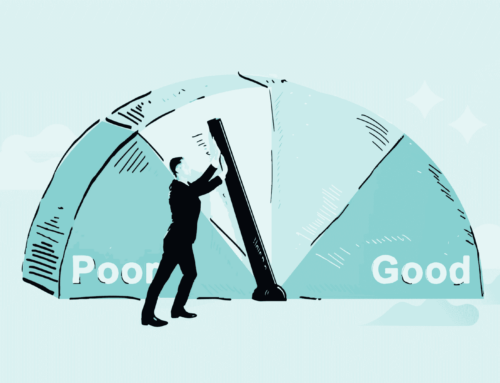Almost one in five credit card users think that a credit score check is bad for their credit, according to a 2018 study by Discover. Even I thought that checking your credit score brought it down and there’s a part of me that is still skeptical when I request a credit score check to this day—even though I know better.
We’re here to tell you that this is not true. It’s a common misconception and, in fact, the opposite could be true.
An earlier survey by the same company found that 70% of those who did a credit score check 12 or more times the previous year (or once a month) said that doing this had a positive impact on their credit behaviour. The more people checked their credit scores, the more positive impact they saw. In fact, 61% of those who did a credit score check 12 or more times said that their credit score improved. This is compared to 32% of those who only checked it once a year said they saw an improvement.
Where did the myth come from that checking your credit score might bring it down? Why is it so common and hard to shake?
Understanding how a credit check works
Two types of credit score checks: Hard and soft inquiries
This myth most likely sprouted from the fact that there are two types of credit checks: hard inquiries and soft inquiries.
A soft inquiry is a kind of credit score check that you would (and should) do. You can check your credit score as often as you want. This is a great way to see what factors affect your credit score and track your progress. The more frequently you check your credit score, the more focus, time, and effort you likely put on your finances and credit.
A hard inquiry, on the other hand, is most likely where the myth sprouted from. Hard inquiries do negatively impact your credit score. A hard inquiry only happens if you approve the credit score check and if, for example, a financial institution requires your credit report for approving a mortgage or opening a new credit card or line of credit. You cannot do a hard inquiry yourself, only creditors can.
One great tip is if a bank asks your permission to check your credit score, get them to tell you what your credit score is and where they see room for improvements.
Two credit reporting agencies in Canada
Canada has two credit reporting agencies, Equifax and TransUnion. Each of these creates their own credit report and accompanying credit score. This means that most Canadian consumers have two credit scores and two credit reports.
Banks, creditors, and other institutions supply these agencies with information about your personal finances. From this data, they create a report and calculate a score for you based on how much weight they make each line item, such as credit history and payment history, have. Neither Equifax nor TransUnion share information or use the same methods to calculate your credit score.
A credit report versus a credit score
We recently wrote a blog post on the difference between a credit report and a credit score. Feel free to check that out and come back here.
A credit report is a record of how well you manage credit—in other words, your creditworthiness. It might say that you pay your credit card monthly minimum payments on time every time. It might say that you’ve had a credit card with TD Bank for 10 years. It might say that you recently opened a $10,000 line of credit with Scotia Bank, for example. Or that you owe a debt on a student loan.
You should also check your credit report, especially for errors, which are more common than you might think. You can get a free credit report check a year from Equifax and TransUnion.
Your credit score, on the other hand, is a 3-digit number that is calculated based on your credit report. To find out your actual credit score from both bureaus, you have to pay for it. But, there are several websites, such as Credit Karma, that offer credit scores and estimators for free.
To conclude, it is a good idea to check your credit score often and stay on top of what your credit report says about you. Watch for credit report errors and line items that are false or could be damaging your credit in some way.
At Marble, we have a credit score check app called Score-Up that allows you to do soft inquiries as often as you want on your credit score. It provides useful tips, tricks, and real-time steps to take in order to improve your credit. Find out which debt to pay off first or catch errors before they do damage to your financial plans for the future.
Learn more about improving your credit with Marble today.






